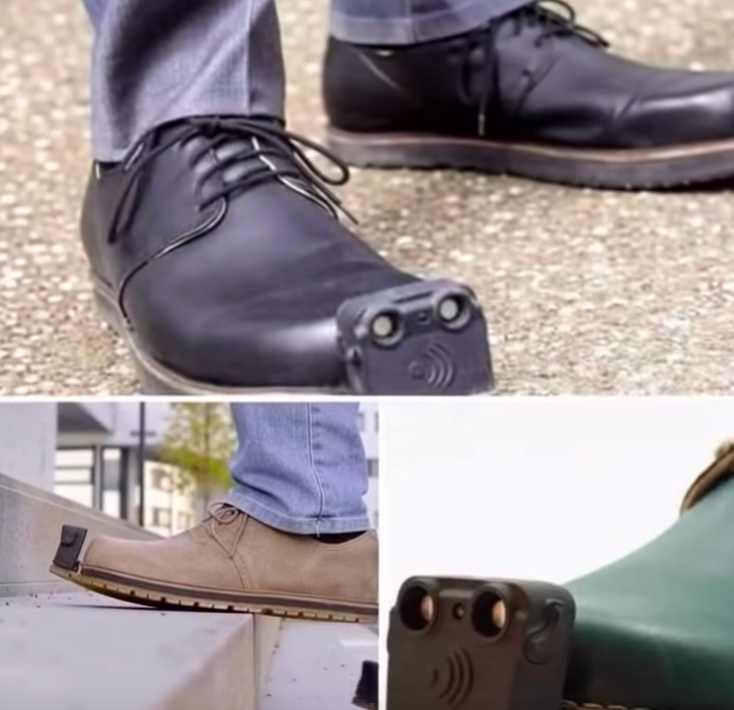At first glance, these might appear to be nothing more than an ordinary pair of sneakers—clean, modern, and effortlessly stylish. Yet, a closer look reveals a small but powerful detail: a tiny sensor discreetly embedded near the toe. That subtle feature transforms what seems like simple footwear into something extraordinary. These are no regular shoes—they’re part of an innovative breakthrough that’s quietly revolutionizing the lives of people across the globe. Known as InnoMake, these cutting-edge shoes are designed to empower individuals with visual impairments, allowing them to navigate their surroundings with newfound safety, awareness, and confidence.
What began as a modest concept in Austria has evolved into one of the most inspiring demonstrations of how technology can restore independence and redefine everyday living. Created by Tec-Innovation in partnership with the Graz University of Technology, each InnoMake shoe is equipped with a durable, waterproof ultrasonic sensor capable of detecting obstacles from up to 13 feet (approximately 4 meters) away. When something appears in the wearer’s path—be it a wall, parked car, staircase, or moving object—the system instantly triggers a gentle vibration or emits a subtle sound cue. This immediate feedback enables the user to respond before danger arises, functioning much like a “parking sensor” for human movement—an elegant blend of precision engineering and compassionate design.

What makes the InnoMake project especially compelling is the deeply personal story that inspired it. One of its co-founders, Markus Raffer, who is visually impaired himself, played a crucial role in developing the concept based on his own experiences and challenges. His firsthand understanding of daily obstacles became the driving force behind a solution that merges empathy with innovation. Thanks to its flexible design, users can either purchase a full pair of smart InnoMake shoes or simply attach the compact sensor module to their existing footwear. The technology goes beyond basic detection—it can even identify what kind of object lies ahead, distinguishing between a curb, pole, or approaching vehicle, and adjusting the feedback intensity to suit the situation.
And remarkably, this is just the beginning. The team at Tec-Innovation is already developing the next generation of InnoMake shoes, aiming to integrate artificial intelligence and camera-based recognition to create what they describe as a real-time “foot-level street view.” This advancement could allow users not only to sense but to visualize safe walking paths, explore unfamiliar areas, and gain even greater autonomy. According to expert Friedrich Fraundorfer from TU Graz, the fusion of sensor data with advanced visual mapping could elevate pedestrian safety and spatial awareness to entirely new levels.
So the next time you spot someone wearing these remarkable shoes, take a moment to realize what you’re witnessing. It’s not merely a triumph of technology—it’s a symbol of hope, progress, and the limitless potential of human ingenuity to make the world more accessible for everyone.


